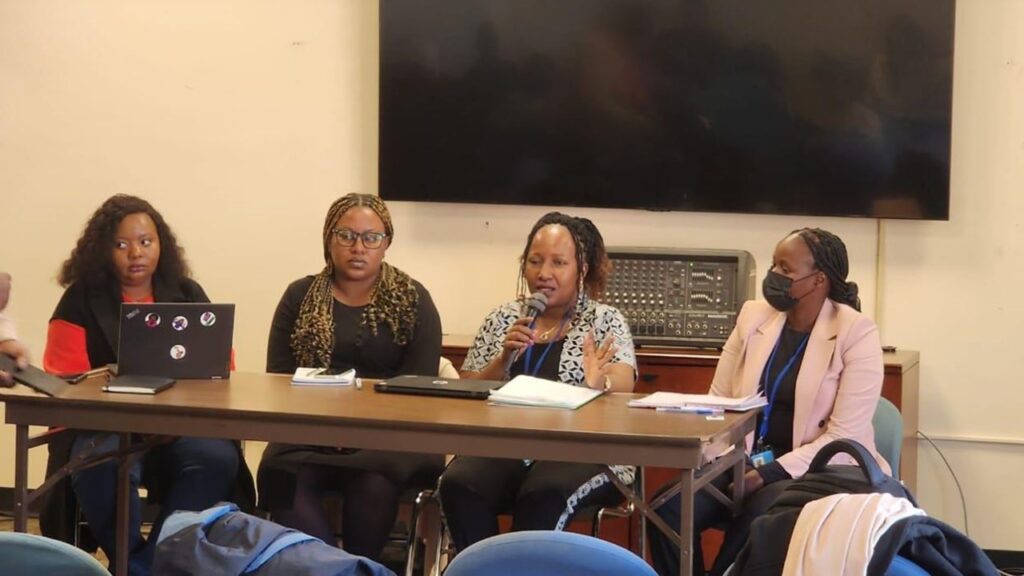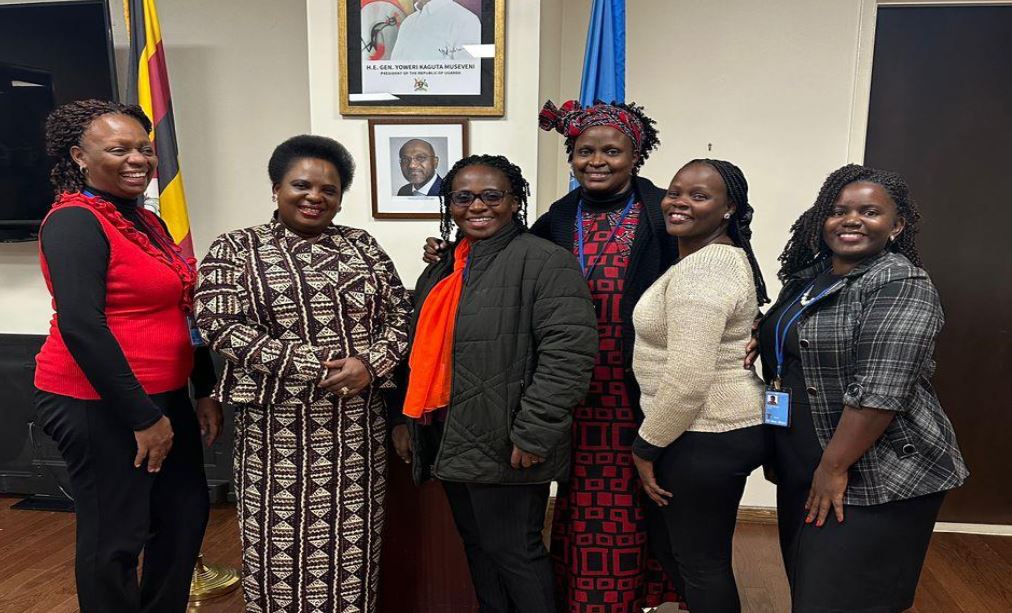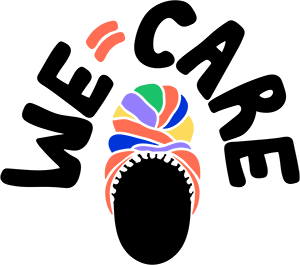Elevating the voices of WE-Care partners in CSW68
The 68th session of the Commission on the Status of Women (CSW68), held in New York from March 11 to 22, 2024, convened a diverse array of stakeholders to deliberate on crucial issues pertaining to gender equality, women’s empowerment, and the intersections of gender with climate change and unpaid care work. Oxfam in Africa, in collaboration with WE-Care partners (AWAK and NEWA), actively participated in multiple sessions throughout the event, contributing insights, experiences, and initiatives aimed at fostering transformative action and advocating for the rights of women and marginalized communities. Partners benefitted from the steer of the Gender Lead at Oxfam in Africa, Felister Gitonga, who moderated all the care-related sessions, and the Programme Manager, Charity Namara, who participated as a panelist in some of the sessions.

Partner voices in the sessions
The WE-Care program’s advocacy asks around recognizing care in public policy and in government budgets, as well as understanding care as a gender and economic issue, took center stage. The partners, including NEWA, participated in the IGAD, Oxfam, and Government of Kenya event titled “Promoting Women’s Empowerment: Exploring the Intersection of Unpaid Care Work and Land Rights for Gender Justice.” This session highlighted the intersection of care work and women’s land rights, spotlighting how women’s lack of access, ownership, and control has a significant impact on their care responsibilities. In the session hosted by Oxfam titled “Transforming Care Economy in Africa for gender-just and sustainable economies,” NEWA and AWAK, drawing from their experiences, spoke about the need to critically look at care as both a rights issue and an intersectional issue that affects, and is affected by, contextual issues such as climate change. The Programme Manager, drawing from the experience of Oxfam’s 10-year run of the programme, spoke about how care impacts poverty and what governments in Africa can do to curb women’s time poverty.
Among the recommendations from this session was a call for member states to:
- Put in place policy frameworks at the National level to address care.
- Invest in care infrastructure, for instance, childcare, time- and labor-saving technology, and accessible public transport. These measures would reduce the time and intensity of unpaid and underpaid care work (UUCDW) and free up women’s time.
- Invest in campaigns to challenge gender norms around UCDW so that care work is fairly redistributed and women’s time is freed to participate in other activities.
Notably, the team participated in other WE-Care events hosted by other Oxfam Affiliates and peer organizations such as Gender Learning Systems (GALS) Method: A Development Tool to Transform Gender Relations at Households and community-level and its application in Government and multilateral organizations; Advancing gender equality through community-based structures in Uganda; and addressing maternal rights in South African last-mile communities. In all these sessions, the team was able to highlight care issues.
Lessons learned
- Inclusivity of disability rights: The need to include/bring on board women’s rights organizations working on care issues, especially for people living with disabilities. During the panel on transforming the care economy in Africa, we were challenged to discuss how disability issues are being addressed in the programme and how we work with disability women’s rights organizations.
- Social protection as a care issue: The need to spotlight visibly the issue of social protection as a care issue. Examples were drawn from the audience about how social protection systems are not working in different parts of the world and how these affect women’s time, as they are the ones who often subsidize the government’s responsibility to provide this protection.
- Centering lived experiences: The need to have a community member/a woman who has lived these care realities that are discussed. While several barriers may limit a woman’s access to this critical space, it should be incumbent upon Oxfam to support them to be able to be heard in such spaces.
- Integrating care across approaches: Care should be integrated into other approaches such as Gender Action Learning Systems, as well as other themes such as Sexual Reproductive Health, as evidenced by the session on Advancing gender equality through community-based structures in Uganda and addressing maternal rights in South African last-mile communities.
- Strategic engagement: An engagement strategy in such high-level events is critical. Oxfam in Africa, through the steer of the Gender lead, developed a strategy that guided the WE-Care delegation and those from OiA.

Conclusion
The 68th session of the Commission on the Status of Women served as a pivotal platform for stakeholders to engage in meaningful dialogues, share best practices, and mobilize collective action towards advancing gender equality, women’s empowerment, and climate justice. Oxfam in Africa, alongside its partners, actively contributed to these discussions, underscoring the imperative of addressing unpaid care work, gender disparities, and the impacts of climate change on women. Moving forward, it is imperative to translate these discussions into tangible actions and policies that promote inclusivity, equity, and resilience in the pursuit of gender justice and sustainable development.
Written by Dr. Judy Matu. The first photo shows representatives from Oxfam in Africa, AWAK, and NEWA on the panel “Transforming Care Economy in Africa for Gender-Just and Sustainable Economies”, while the second photo shows the WE-Care Program Manager, Head of IGAD in Uganda, Ugandan Minister of Gender, Labour, and Social Development together with representatives from other CSOs at the Uganda House in New York. Photo courtesy of AWAK.
